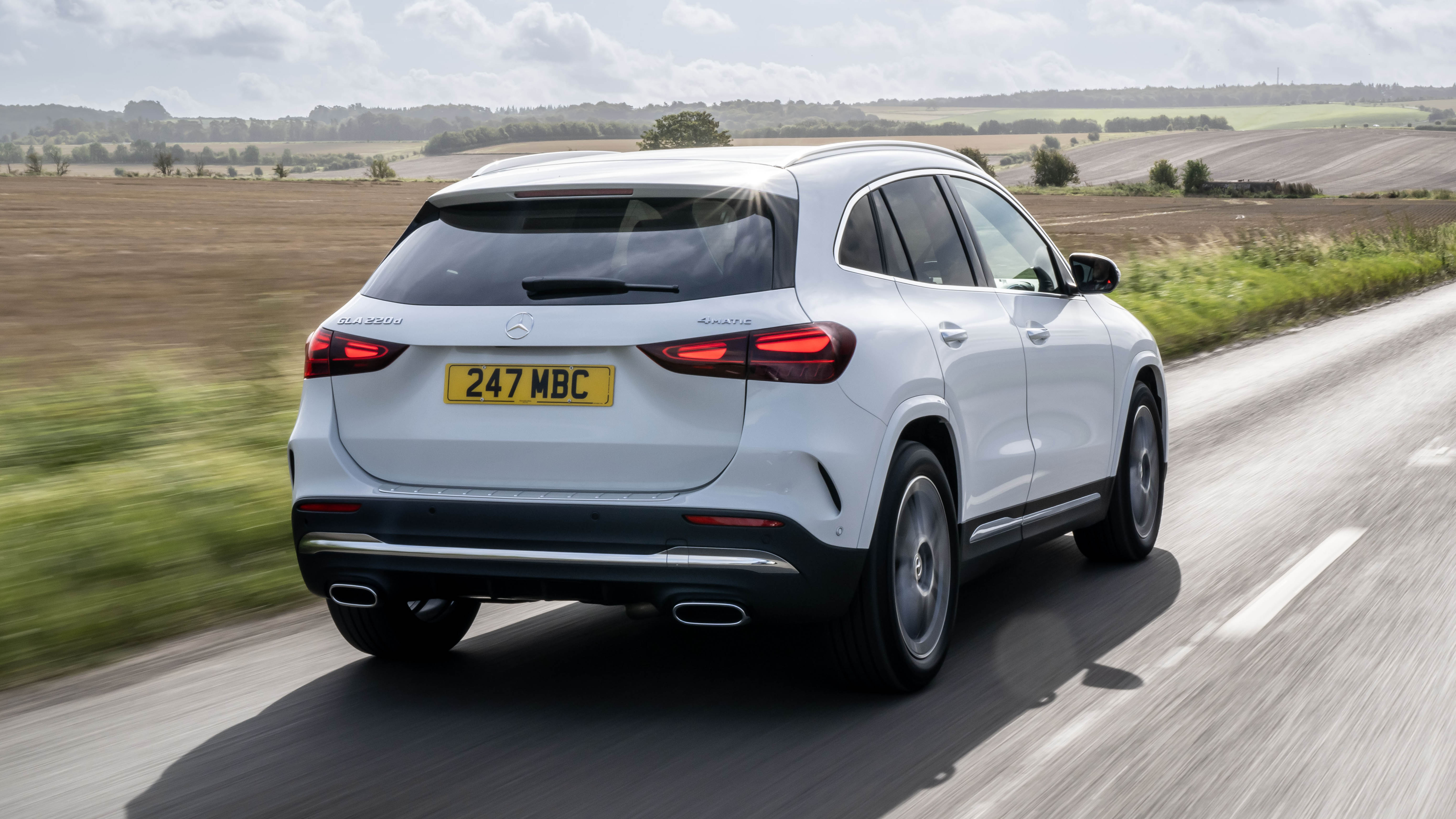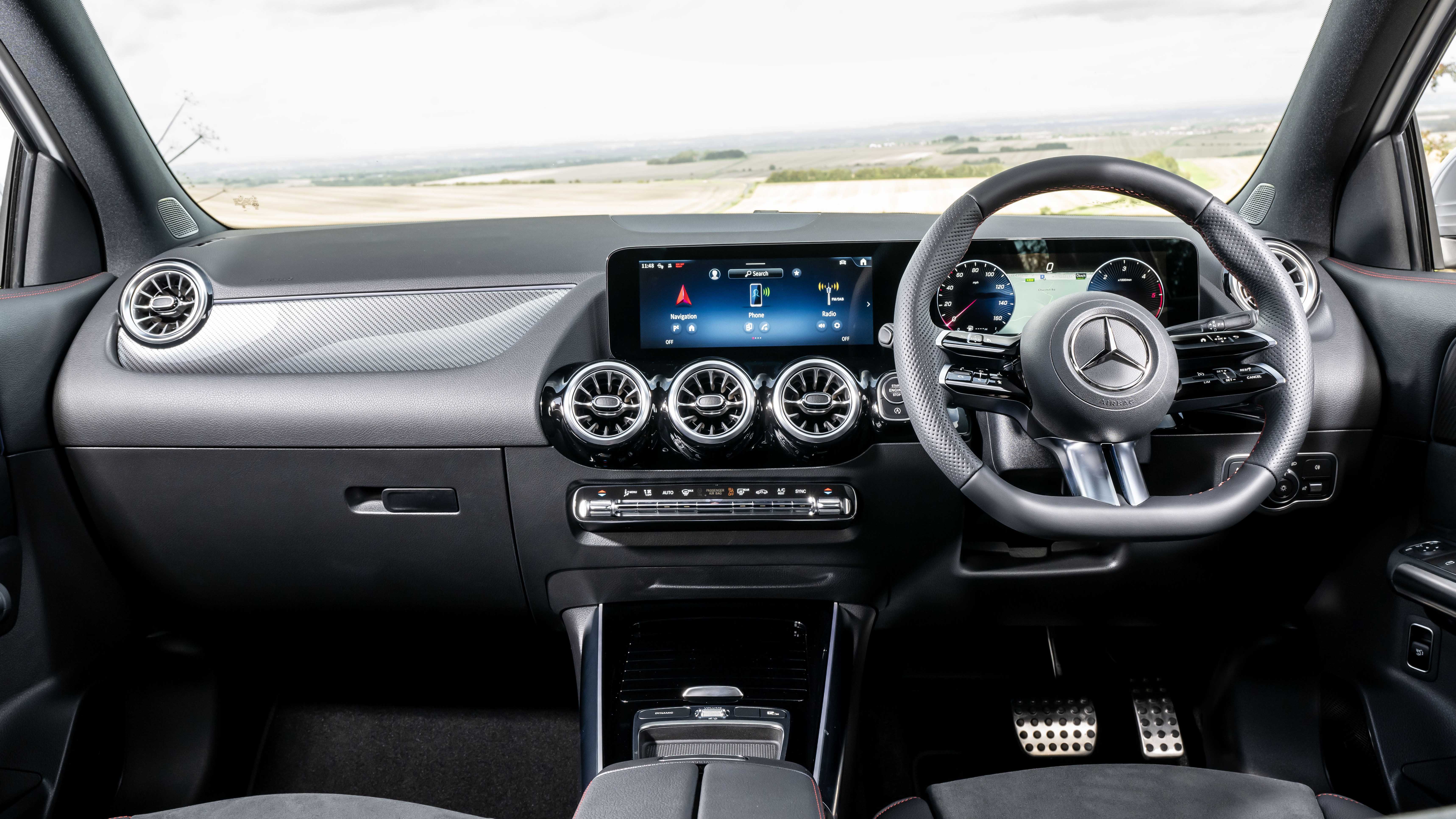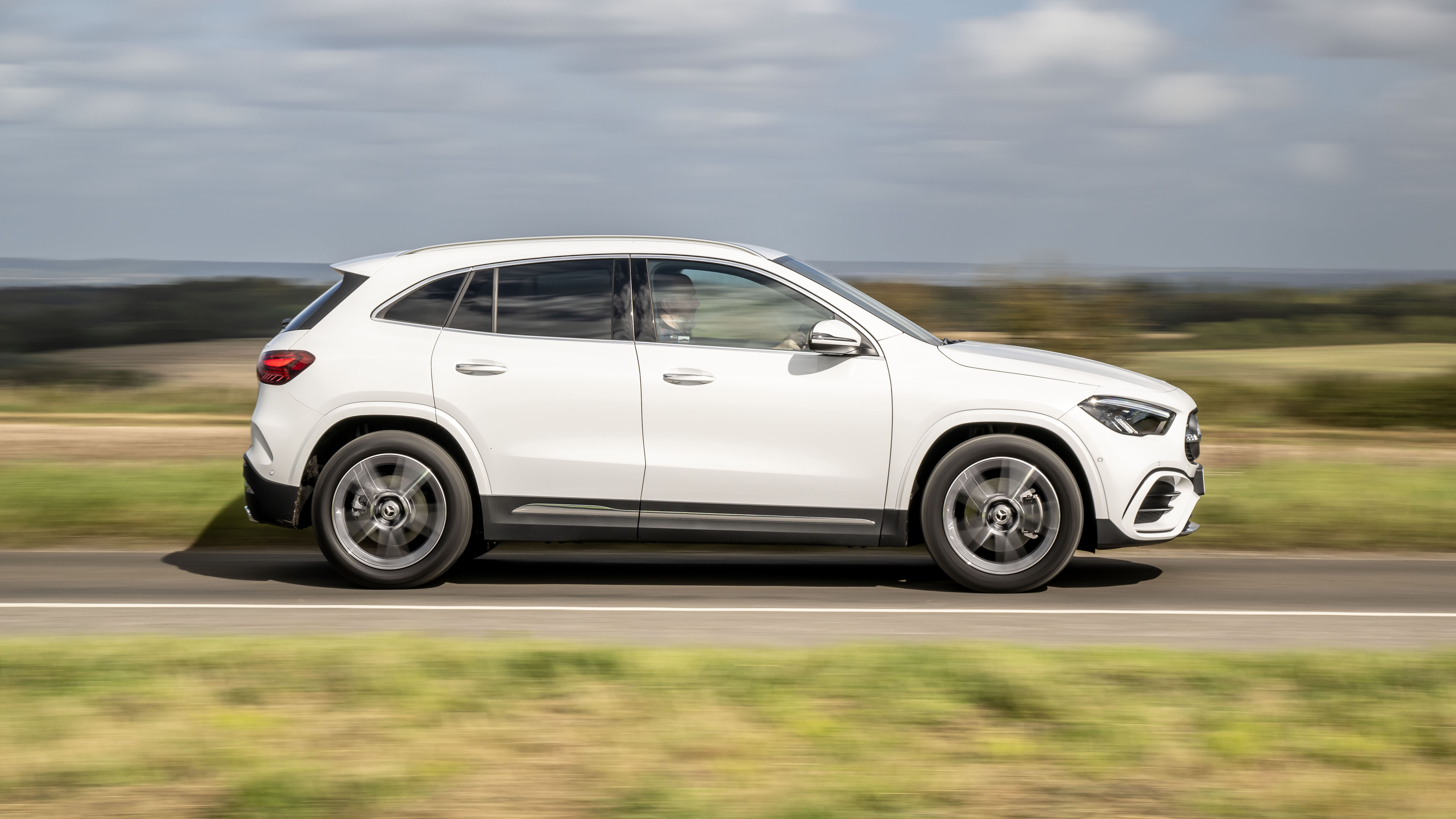
Interior
What is it like on the inside?
Happily the new GLA’s interior is more memorable than the way it looks and the way it drives. The driver sits higher than before on comfier seats, like in an actual SUV, and twin, highly configurable widescreen displays - now featuring the latest generation of MBUX as part of the facelift - are standard fit. They're a spectacular sight too, and will surely impress your passengers.
WHAT’S CHANGED POST FACELIFT?
The laptop-style trackpad on the centre console has gone (replaced by a cubby hole), which hurts our heart, but you can touch or talk to them – something that works brilliantly 90 per cent of the time. Helped no end by the smart user interface, which after a bit of practice is easy enough to wrap your head around.
Mercedes has at least used common sense when it comes to the climate controls, and has retained the row of physical switchgear underneath the turbine-style central air vents. Big thumbs up from us there. Shame the same can’t be said for the steering wheel, which is now quad-spoke and plays host to small and fiddly touchpad controls where there were actual switches before. Grrr.
WILL MY PASSENGERS ENJOY THE RIDE?
There’s more space in here compared to the previous-gen GLA: now you can fit actual adults in the back, where the seats slide about and fold flat just like they do in the bigger GLB. Meanwhile material quality is broadly fine. Scratchy plastics are mostly confined to areas of the cabin you don’t often touch or look at.
The boot floor is a two-position job, but capacity is only 485 litres (1,420 litres seats folded) in the standard petrol and diesels, and 445/1,385 litres seats up/down in the PHEV, due to the battery. That’s more than a Volvo XC40 and on par with the Audi Q3, but less than you get in a BMW X1.
Featured

Trending this week
- Car Review
BMW iX3






